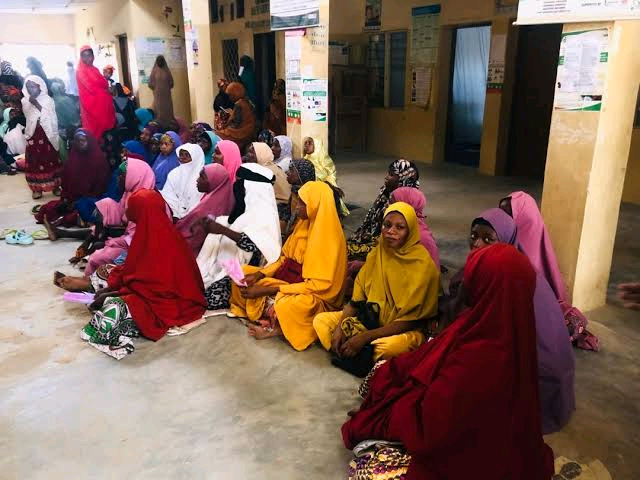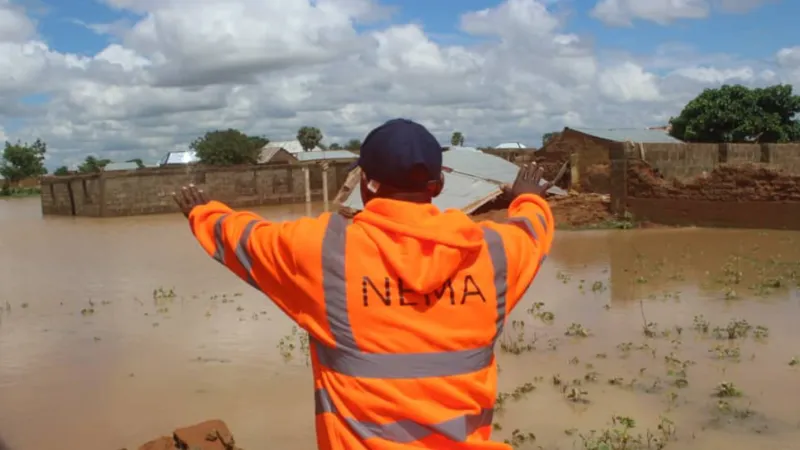Despite receiving billions of naira in federal allocations, primary healthcare centres (PHCs) across northern Nigeria remain in a deplorable state—crippled by poor staffing, lack of equipment, and administrative neglect—leaving rural populations to battle preventable diseases like malaria, cholera, and maternal complications with little or no help. Hussaini Kafi in Kano reports.
An investigation by Africa Health Report (AHR) reveals that although the federal government has consistently budgeted substantial sums for the revitalization of PHCs through the Basic Healthcare Provision Fund (BHCPF) and the National Primary Healthcare Development Agency (NPHCDA), many northern states have little to show for it. From Sokoto to Borno, from Zamfara to Niger, PHCs in most rural areas exist as abandoned or under-resourced structures, failing to serve the communities for which they were established.
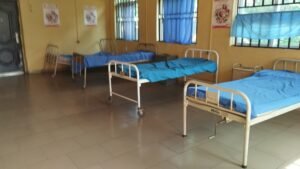
Billions Allocated, Millions Left Behind
Between 2021 and 2024, over ₦35 billion was allocated to northern states under various federal health programs aimed at strengthening PHCs. However, rural residents in states like Katsina, Zamfara, Jigawa, Kebbi, Gombe, and Bauchi told AHR that the only thing visible in their communities are skeletal buildings marked “Primary Health Centre.”
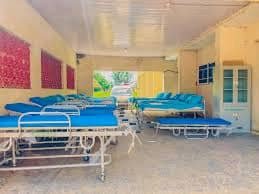
“In our village, the health centre is just a building with faded paint,” said a resident of Gummi LGA, Zamfara State, who requested anonymity. “No health worker, no drugs, no electricity. When someone is sick, we pray first, then rush them to the town—if they’re lucky to survive.”
Another villager from Maradun area echoed similar frustration: “The centre has not had a qualified nurse for years. They said someone was posted, but we never saw the person. We rely on herbs now because even paracetamol is unavailable.”
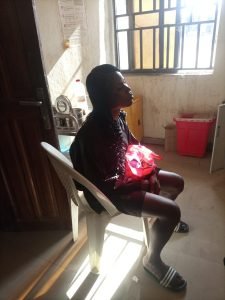

Experts argue that while the idea of having a PHC for every three to four villages—as stipulated in the National Health Policy—is noble, the execution has been marred by corruption, mismanagement, and lack of political will.
CHRICED Steps Up in the Absence of Government
Amid the rot, some non-governmental organizations have stepped in to provide relief. One of them, the Resource Centre for Human Rights and Civic Education (CHRICED), recently organized a maternal health outreach in Kumbotso LGA of Kano State, demonstrating what responsive, community-based healthcare should look like.
At the Ahmad Ado Bayero Model PHC in Yan Shana, CHRICED distributed essential items including wrappers, diapers, detergents, and dates to over 50 pregnant women to encourage them to return for antenatal care.
Speaking to AHR, Mohammed Shehu, Assistant Officer-in-Charge of the PHC, commended the initiative. “Without this support, many women wouldn’t show up. They see no reason to come to a centre with nothing inside. CHRICED is changing that.”
CHRICED’s Senior Program Officer, Omoniyi Adeoye, emphasized the lifesaving impact of such outreaches. “Antenatal care is not just a formality. It detects high-risk pregnancies and provides early intervention to save both mothers and babies.”
Hadiza Bala of the Women’s Peace and Security Network said the items also reduced economic pressure on pregnant women. “Many cannot even afford basic sanitary items. Giving them relief materials boosts their confidence and encourages consistent antenatal visits.”
One of the beneficiaries, Aisha Mohammed, said she had stopped attending antenatal sessions until she received the support. “This will help me take care of myself and my baby. I will also encourage my neighbors.”
A Deadly Pattern of Neglect
Across northern Nigeria, similar stories abound: PHCs without trained personnel, no running water, no electricity, no drugs, and in some cases, no access roads. In remote parts of Borno, Zamfara, Sokoto, and Taraba, community members told AHR that many centres had become hideouts for animals or had collapsed due to poor construction and abandonment.
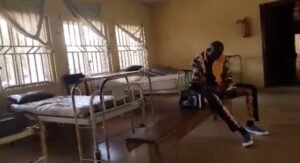

The consequences are deadly. In 2024, cholera outbreaks killed dozens across Bauchi, Niger, and Jigawa States, due to poor sanitation and the absence of early detection mechanisms that functional PHCs could have provided. Similarly, malaria cases in Kebbi and Katsina surged due to the non-availability of test kits and treatment at the local level.
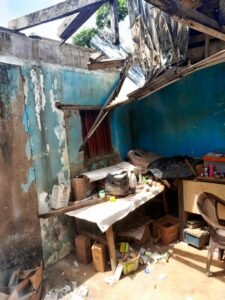
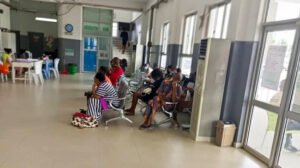
“Cholera is a waterborne disease. It thrives where there is no health education and where communities are not monitored for early signs of outbreak,” said Dr. Nafisa Shehu, a public health expert based in Bauchi. “That is the job of PHCs—to serve as the first line of defense. But when they don’t exist, we are always too late.
Sumaila in Ruins
In Sumaila, a rural LGA in Kano State, residents described their PHC as nothing short of an abandoned relic. A young mother who lost her newborn in 2023 said, “I delivered on the floor. There was no delivery bed, no nurse, no drugs. My child stopped breathing and we couldn’t do anything.”
Another male resident stated anonymously, “The roof is leaking, windows broken. We sometimes use torches at night to help patients because there’s no light. It’s a shame—this is supposed to be our lifeline.”
Health workers in the area also lamented the working conditions. “We are not even safe here,” said a junior health aide. “We use our money to buy basic tools. No one listens to our complaints. We are forgotten.”
The Buhari Irony
The death of former President Muhammadu Buhari in a London hospital this month has reignited national outrage over the deplorable state of Nigeria’s health system. Buhari, who ruled from 2015 to 2023, had consistently travelled abroad for medical care while in office.
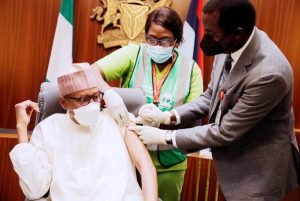
In an interview with Channels Television, his former spokesperson, Femi Adesina, defended the practice. “If he had said I’d do my medicals in Nigeria just for show off or something, he could have long been dead,” Adesina said.

His comment was seen by many as an admission of government failure.
“For eight years, he had the power and budget to transform the healthcare system, especially the PHCs, and he did not,” said Dr. Ibrahim Wada, a physician and health rights advocate. “That he still died abroad is a tragedy, but the real tragedy is that millions of Nigerians die here at home every day without the option of London clinics.”
Staff Shortages and Frustration
The absence of trained health workers remains one of the most critical challenges affecting PHCs in northern Nigeria. A 2025 review by the National Primary Healthcare Development Agency found that over 68% of PHCs in the northern region do not have certified nurses, midwives, or doctors. Some are managed by untrained aides or volunteers with no medical background.
“We are grossly understaffed. Nobody wants to come to the village,” lamented a PHC coordinator in Shinkafi, Zamfara State, speaking under condition of anonymity. “There are no quarters for staff. Salaries are delayed. Drugs are not supplied. How can you retain anyone under such conditions?”
The result, health experts say, is an increasing burden on tertiary hospitals, which are forced to treat minor illnesses that could have been handled at the local level—if the PHCs were functioning.
What Needs to Change?
Civil society groups are now calling for an urgent overhaul of Nigeria’s PHC system—starting with greater transparency in fund allocation, regular auditing of PHC performance, and immediate recruitment of trained staff with rural incentives.
“It’s not about building more centres,” said CHRICED’s Omoniyi Adeoye. “We already have enough. Equip the existing ones. Staff them. Monitor them. Make them work.”
Others call for community-based health insurance schemes and local government autonomy to manage health resources. “Health should be treated as a right, not a privilege,” said Dr. Nafisa Shehu. “The north is bleeding from avoidable diseases. That must end.”
Some states—like Bauchi and Kaduna—have shown improvement in PHC revitalization through public-private partnerships, but such models are still too limited to have a widespread impact.
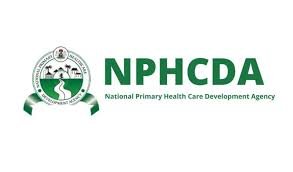
As Nigeria mourns a former president who died abroad while millions suffer locally, the contrast could not be clearer. The north, home to nearly half the country’s population, remains the most underserved region in terms of healthcare.
Until federal and state governments match their promises with action—equipping PHCs, recruiting competent staff, and involving communities in healthcare governance—disease and death will remain widespread.
And for expectant mothers like Aisha Mohammed in Kumbotso, or grieving families in Zamfara and Dawakin Kudu, the message is clear: healthcare cannot wait. The time to act is now.

